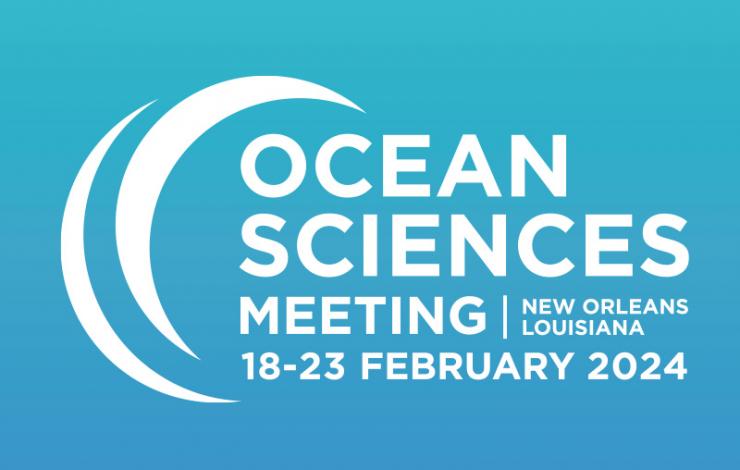Over 62 scientists from PMEL, including researchers from NOAA’s Cooperative Institutes and the University of Washington's Cooperative Institute for Climate, Ocean, & Ecosystem Studies (CICOES) and Oregon State University's Cooperative Institute for Marine Resources Studies (CIMRS) attended the Ocean Sciences Meeting in New Orleans from February 18-23. The 2024 Ocean Sciences Meeting served as a conference that unified the ocean community and brought researchers together to share findings, make connections, and advance science. Five members of the Ocean Molecular Ecology group were in attendance.
Sean McAllister presented results from the 2021 West Coast Ocean Acidification (WCOA) Cruise, which was in collaboration with PMEL Ocean Carbon. During the cruise, 525 unique environmental DNA (eDNA) samples were collected from Vancouver Island, BC to Southern California. Our eDNA samples captured diverse marine communities (e.g., phytoplankton, fish, marine mammals) across a large spatial gradient. When analyzed alongside chemical and physical parameters, we were able to draw preliminary conclusions regarding community structure in relation to warming, ocean acidification, and low-oxygen events (hypoxia) along this expansive spatial gradient. Further analysis is underway to identify key indicator species for use in monitoring and predicting ecosystem health in our changing oceans.
Shannon Brown presented on ongoing research with autonomous eDNA samplers in the Olympic Coast National Marine Sanctuary. Changing ocean conditions, driven by climate change, are threatening the sanctuary’s marine ecosystem with increased, hypoxic events. We deployed samplers alongside oceanographic moorings to better understand how marine communities are impacted by these changing conditions. Our results captured a wide range of taxonomic diversity including species of commercial, recreational, cultural, and subsistence importance.
Zack Gold co-chaired a session on Ocean Biomolecular Observing Networks, and presented on a cross-NOAA bioinformatics effort to improve trustworthiness and reliability of eDNA data. More specifically, he outlined a suite of tools and approaches to accurately assign taxonomy when processing eDNA data to better characterize marine biodiversity. Han Weinrich presented on their honors thesis work investigating microbial prokaryotic communities associated with hydrothermal vent tube worms. Sam Setta presented on her PhD thesis work on diatom distribution and diatom diazotroph associations across nutrient regimes.



